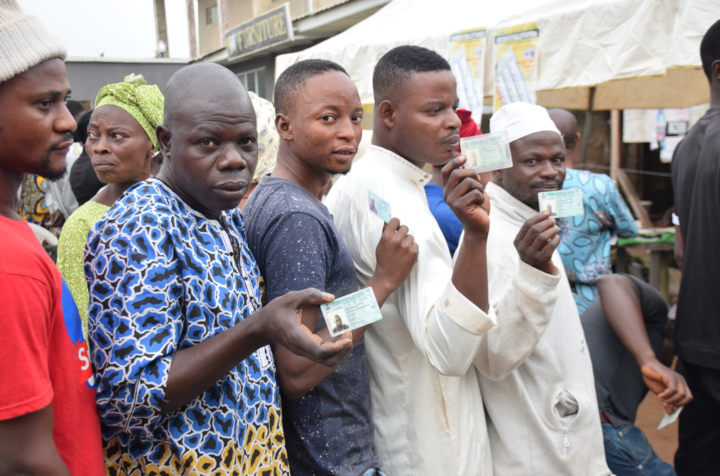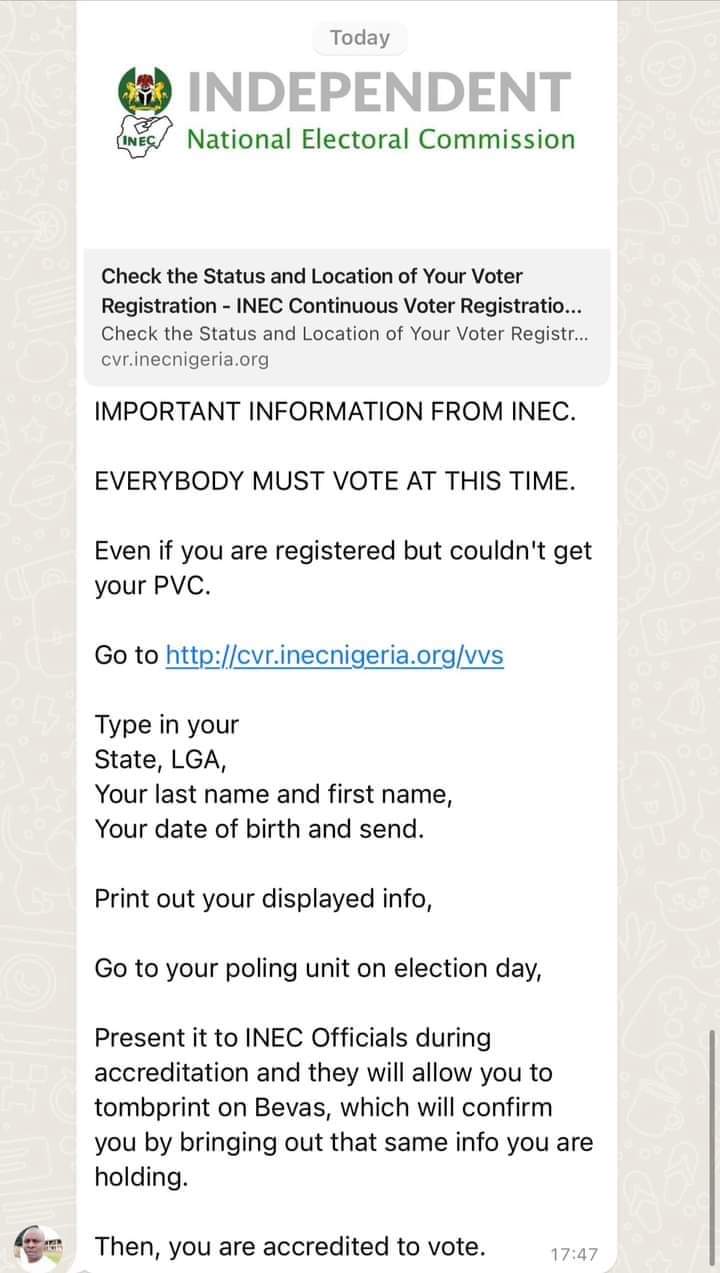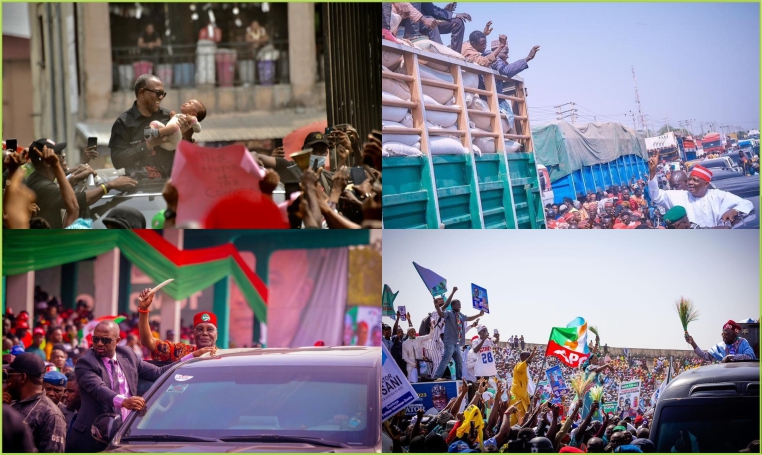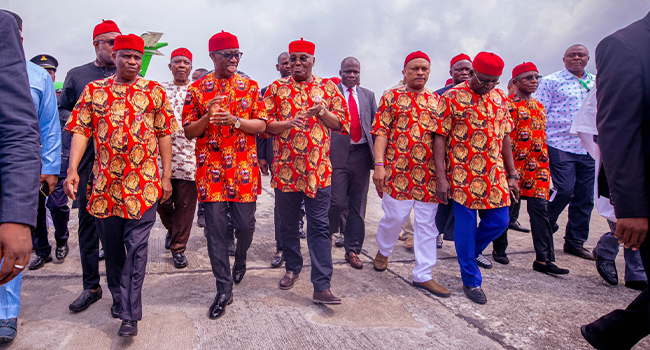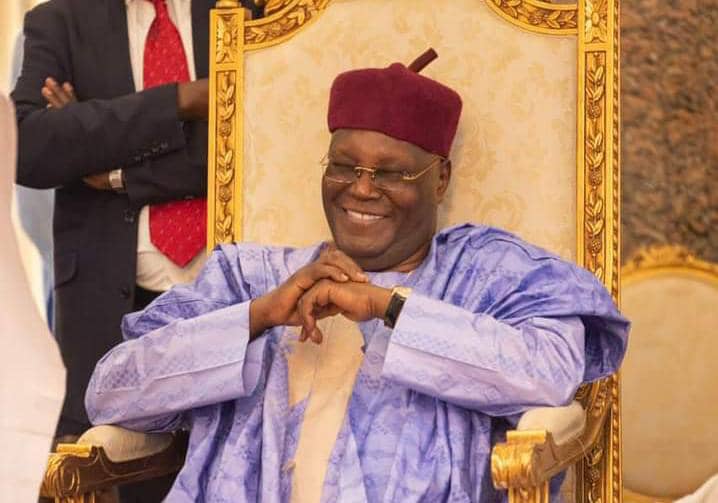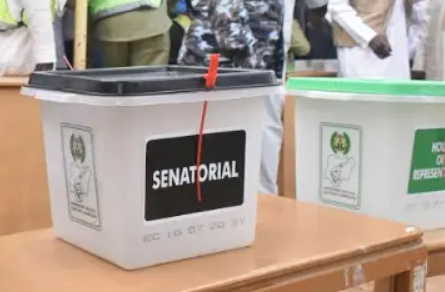It is less than 24 hours to Nigeria’s presidential election and Yakubu Isa, a resident of Abuja, the country’s capital, is still unsure of who to vote for. He said all the political candidates are cut from the same cloth and it doesn’t really matter who wins. Although he admitted that some are better than the rest, he said seeing past the disguise is the true challenge.
According to a recent ANAP poll, Isa is one of Nigeria’s 23% undecided voters. Undecided voters are people who are less engaged with politics and have more ambiguous feelings about the electoral process. Some may argue that this fraction seems insignificant as results would still be determined by whatever number of votes cast. But in a tight race where the vote margin is so small, those extra numbers could be the light at the end of a dark tunnel for a presidential hopeful.
In another poll by Bloomberg, the percentage of undecided voters hover between 17% and 45%, depending on whether we add those who refuse to reveal their candidates of choice or not. Most of the people who fall within this bracket tend to be either first-time voters or young voters who ironically make up a large percentage of the eligible voting population.
Typical of every election cycle, hope is renewed and minds are made up to rid the country of failed systems and elect new leaders with the national interest at heart. Yet, for the past two elections, voter turnout has been consistently low. According to the Situation Room, at 46.07%, the turnout for the 2015 presidential election was the lowest since 1979. In 2019, the percentage dropped to 35.66 % with a total of 84 million registered voters and a turnout of 28.6 million. The north-west had the highest turnout in the election which President Muhammadu Buhari won.
Advertisement
But it appears things will be different this time. The air is heavy with anticipation as more people, specifically youths, are showing more interest than before.
DISTRUST, CONFUSION
Jonathan Abakpa, a lawyer and public affairs expert, said the unenthusiastic attitude of the undecided voting population may continue until election day. A reason for this, he said, is because the forerunners in the race failed to convince the electorate of their plans for the country.
Advertisement
“Usually, the electorate is swayed by popular demand and now there is popular demand for four people. So, we may just keep having this situation till election day,” he told TheCable.
“A lot of them don’t trust the electoral process. For instance, I may want to put myself among those who are undecided, and for me, it’s ideological. If I’m to look at the four leading presidential candidates, irrespective of their party platforms, the honest truth is that there’s little or no difference in their ideologies.
“You find some who are neo-liberal and some who are pro-capitalist. Some of them are neo-liberal and pro-capitalist running on a socialist and a conservative platform. The question now becomes to what extent and to how can you achieve your manifesto if your personal convictions and principles don’t align with the party you’re being projected on?
“While some are voting for the character, some are voting for experience and past records; some are looking for ideologies. Character, for instance, does not make a good leader. We’ve had situations where Nigerians voted for character and they’re still paying heavily for it.”
Advertisement
Titilope Anifowoshe, also a lawyer and public affairs expert, told TheCable that a concentration of resources on popular candidates by their parties sometimes makes the electorate doubt the character of the platform, especially for voters that are new to the system.
“Most of the time, the 28% of undecided voters for example, you may see that they’re largely made up of young or new voters or people who are tired or people who have voted consistently and have not seen any changes. Don’t forget that we have a surge in the registration of new voters. So, it could be that they’re new to the system and feeling overwhelmed,” she said.
“Different political parties, I’m not just talking about the presidential election, fail to include more candidates across boards. In the past, you would discover that a political party may be fielding someone popular for president; meanwhile, they don’t have any candidate in the state assembly and other grassroots.
“Today when you enter Kwara, the first billboard you see is from the candidate of the Young Progressive Party (YPP). That has never happened before. Meanwhile, the presidential candidate of the same party is not popular. You go further in the city and see billboards of candidates in the Accord Party. The same with Osun state, Oyo state, Bayelsa, and Edo. Now they see so many options and are undecided and wonder why it’s not the same level of devotion to the other members.”
Advertisement
For Abakpa, the inability of the candidates to make a mark on some people may have a direct impact on them.
“Democracy is beyond the government of, for, and by the people — it’s a game of numbers. And for every group shying away from the election, it is actually going to affect the outcome. Imagine the 28% staying away from the process. 28% is a large chunk of the number; that should be over 10 million voters saying they’re unsure. And close to 10 million votes can decide the fate of a candidate,” he said.
Advertisement
SUSTAINED UNINTEREST MAY SPUR VOTER APATHY
Ogoegbunam Kingdom, executive director, Platform for Youth and Women Development (PAYW-DEV), said a lot of voters do not trust the electoral process.
Advertisement
A voter education exercise, in collaboration with the Independent National Electoral Commission (INEC) carried out by PAYW-DEV in 2022, showed there is distrust between the electorate and the electoral system.
“An average voter in Nigeria already has a mindset that results are written and proper elections do not hold, this de-motivates the voters from participating in the process and further increases voter apathy,” Kingdom told TheCable.
Advertisement
“Political actors are also very complicit in this trajectory. The high interest to intimidate citizens who are not willing to support and vote their endorsed candidates have as well led to a high amount of indecisiveness.”
A recent Nextier poll confirmed this. Although the results speculated that voter turnout “looks significantly higher than four years ago”, it added that it could be a combination of insecurity, concern about the freedom and fairness of the election, and concerns about INEC.
About 52% of respondents are unsure’s of INEC’s capability to conduct a free and fair election. Over two-thirds of Nigerians believe the country is going in the wrong direction, the poll stated.
Anifowoshe added that the current naira and fuel scarcity challenges will not do much for voters who are already indecisive. The result will be a low turnout, she said.
“It is easy for it to transcend into voter apathy. Think about it. I don’t know who I’m going to vote for. I don’t have the cash to go to my polling unit, or even eat a meal before voting. Do you think I’ll have the energy to vote? Don’t forget I’ve probably been thinking about these for days in darkness and I don’t have the cash to get fuel or gas,” she said.
“Nigerians shouldn’t just focus on the president. They should be bothered about who becomes their house of reps member, their local government chairman, and so on. We need to get it right because change starts from the roots.”
Add a comment
